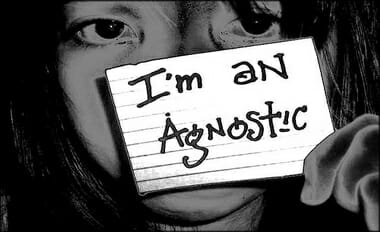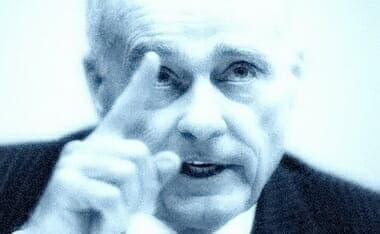Okay, let’s get this party started… right? I had seen a blip of Dawkins admitting — and it really is an admission of sorts — that what Christ wrought [as a worldview] is CULTURALLY what he [Dawkins] prefers to live under. He says he prefers this over Islam, but note, he didn’t mention he would rather live under some atheistic program.
“If I had to choose between Christianity and Islam, I’d choose Christianity every single time.”
Self-proclaimed ‘cultural Christian’, @RichardDawkins, tells @RachelSJohnson he’s ‘slightly horrified’ to hear Ramadan lights were hung on Oxford Street rather than Easter lights. pic.twitter.com/ZY2ePfpms1
— LBC (@LBC) March 31, 2024
Why?
Because when dialectical materialism comes about as a worldview embedded into government, what do we get? (PDF version of the below)
A recent comprehensive compilation of the history of human warfare, Encyclopedia of Wars by Charles Phillips and Alan Axelrod documents 1763 wars, of which 123 have been classified to involve a religious conflict. So, what atheists have considered to be ‘most’ really amounts to less than 7% of all wars. It is interesting to note that 66 of these wars (more than 50%) involved Islam, which did not even exist as a religion for the first 3,000 years of recorded human warfare. Even the Seven Years’ War, widely recognized to be “religious” in motivation, noting that the warring factions were not necessarily split along confessional lines as much as along secular interests.
CHRISTIANITY (Crusades)
- 9 Total Crusades from 1095-1272 A.D;
- The crusades lasted about 177 years;
- bout 1-million deaths – this includes: disease, the selling into slavery, and died en-route to the Holy land;
- About 5,650 deaths a year.
(More visual info HERE)
ATHEISM (Stalin)
- His rise to power in 1927 lasted until his death in 1953;
- Stalin’s reign was 26-years;
- Middle road estimates of deaths are from 20-million to a high of 60-milion;
- That clocks in at about 1,923,076 deaths a year.
(Some put the death toll per-week by Stalin at 40,000 every week — even during “peacetime” [IBT])
ATHEISM (Mao)
- His rise to power was in 1949 until his death in 1976;
- Mao’s reign was 27-years;
- HOWEVER, the “Great Leap Forward” was 4-years (1958 to 1962);
- While Mao killed about 78-million people, in just 4-years he killed 45-million people
- That is almost 31,000 a day — killed — for four years.
ISLAM (killing just Hindus)
- From 1000 (conquest of Afghanistan) to 1525 (end of Delhi Sultanate);
- 80-million killed;
- 160,000 a year.
[BTW, over 270 million people have been killed by Islam, over a hundred millions blacks on the Continent of Africa — for the #woke crowd’s knowledge Muhammad was racist to the bone.]
… a minimum of 28 million African were enslaved in the Muslim Middle East. Since, at least, 80 percent of those captured by Muslim slave traders were calculated to have died before reaching the slave market, it is believed that the death toll from 1400 years of Arab and Muslim slave raids into Africa could have been as high as 112 Million. When added to the number of those sold in the slave markets, the total number of African victims of the trans-Saharan and East African slave trade could be significantly higher than 140 million people. – John Allembillah Azumah, author of The Legacy of Arab-Islam in Africa: A Quest for Inter-religious Dialogue
As an aside… about 5.714 [yes, point] people were killed a year by the Spanish Inquisition [if you take the highest number] over its 350-year long stretch if you use the leading historian on the topic.
Another aside: the Crusades were largely an operation to free people, whereas Islamic caliphates [jihad] were to convert and enslave people.
- Alan Axelrod & Charles Phillips, Encyclopedia of Wars, 3 volumes (New York, NY: Facts on File, 2005);
- John Entick, The General History of the Late War (Volume 3); Containing It’s Rise, Progress, and Event, in Europe, Asia, Africa, and America (Reprinted by Hard Press; date of publication was from about 1765-1766);
- William T. Cavanaugh, The Myth of Religious Violence (New York, NY: Oxford University Press, 2009);
- Gordon Martel, The Encyclopedia of War, 5 Volumes (New Jersey, NJ: Wiley, 2012);
- Henry Kamen, The Spanish Inquisition: A Historical Revision (London, England: Yale University Press, 1997);
- (8-authors) The Black Book of Communism: Crimes, Terror, Repression (Cambridge, MA: Harvard University Press, 1999);
- J. Rummel, Death by Government: Genocide and Mass Murder Since 1900 (New York, NY: Routledge Publishers, 1997);
- Jung Chang and Jon Halliday, Mao: The Unknown Story (New York, NY: Anchor Books, 2005);
- M. Davis, House of War: Islam’s Jihad Against the World (Washington, D.C.: WND Books, 2015);
- Islamic Jihad: A Legacy of Forced Conversion, Imperialism, and Slavery (Bloomington, IN: iUniversity, 2009).
MORE via my site, RELIGIO-POLITICAL TALK
AGAIN, to be clear via STAND TO REASON:
- Not only were students able to demonstrate the paucity of evidence for this claim, but we helped them discover that the facts of history show the opposite: religion is the cause of a very small minority of wars. Phillips and Axelrod’s three-volume Encyclopedia of Wars lays out the simple facts. In 5 millennia worth of wars—1,763 total—only 123 (or about 7%) were religious in nature (according to author Vox Day in the book The Irrational Atheist). If you remove the 66 wars waged in the name of Islam, it cuts the number down to a little more than 3%. A second [5-volume] scholarly source, The Encyclopedia of War edited by Gordon Martel, confirms this data, concluding that only 6% of the wars listed in its pages can be labelled religious wars. Thirdly, William Cavanaugh’s book, The Myth of Religious Violence, exposes the “wars of religion” claim. And finally, a recent report (2014) from the Institute for Economics and Peace further debunks this myth.
In other words, the culturally Christian West seems to diminish the propensity to “war.”
WHICH may be part of the issue, as well as culturally where we are headed with “gender,” “climate legislation/regulation,” “free-speech,” and the like that are bringing a consensus of sorts on the idea of the positive attributes of the Judeo-Christian worldview. Which leads me to my next example… a recent ATLANTIC article. Mr. Thompson starts the article thus:
- As an agnostic, I have spent most of my life thinking about the decline of faith in America in mostly positive terms. Organized religion seemed, to me, beset by scandal and entangled in noxious politics. So, I thought, what is there really to mourn? Only in the past few years have I come around to a different view. Maybe religion, for all of its faults, works a bit like a retaining wall to hold back the destabilizing pressure of American hyper-individualism, which threatens to swell and spill over in its absence.
Here, ARMSTRONG & GETTY discuss the article, as two non-believers/cultural Christians themselves:
As they were discussing the issue, I was thinking of this well worn quote from G.K. Chesterton: “Don’t ever take a fence down until you know the reason it was put up.” You should read the entire ATLANTIC article.
Bill Maher recently noted the following:
- For all the progressives and academics who refer to Israel as an outpost of Western civilization, like it’s a bad thing, please note: Western civilization is what gave the world pretty much every [expletive] liberal precept that liberals are supposed to adore. Individual liberty, scientific inquiry, rule of law, religious freedom, women’s rights, human rights, democracy, trial by jury, freedom of speech. Please, somebody, stop us before we enlighten again.
Western civ is basically the Greco-Roman/Judaica-Christianity stream of influence. The CHRISTIAN POST, after quoting Maher, finishes their story:
- Which, in fact, brings up just what Bill Maher left out in his otherwise thoughtful and compelling monologue. As you might expect from the guy behind the faith-despising faux-documentary Religulous, he’s not quite ready to admit the role of religion in cultivating liberty and human rights. Because Voltaire and Rousseau were anti-religious, they are safe to mention. Locke and King are often praised almost in spite of their deep faith, which Maher never mentioned.
For more on the video to the right, see my post:
And it is this failure for community, freedom, and following the science (gender) that is chasing people away from secularism… into Western Foundations.
Dave Rubin of “The Rubin Report” talks to Frank Turek author of “I Don’t Have Enough Faith to Be an Atheist” about the collapse of the New Atheist movement; Richard Dawkins admitting that religion may be necessary for a flourishing society; the failure of atheism in providing a sense of purpose and meaning; what prominent atheists like Christopher Hitchens and Sam Harris overlooked; how only religions like Christianity and Judaism can protect a society from the worst elements of radical Islam; the spreading of social justice and woke culture in America’s churches; the case for intelligent design as a part of the story of evolution; how morality always ends up being legislated; Jordan Peterson’s utilitarian view of religion; and much more.
CROSS EXAMINED NOTED: Yes, we know that Dave Rubin is an openly gay man. CrossExamined.org does not always agree with and affirm all the held beliefs of our guests. Dave did not agree with everything Frank said when he was on The Rubin Report last month either. However, it is good to have dialogue and ask questions of non-Christian guests to see if they are open to Christ, as you will hear Frank do with Dave. We also welcome guests who can add value to specific topics on which we do agree. Despite our noted disagreements, Dave gets a lot right.
I will end with this article I found to be an interesting and pleasant read… this is how it ends:
From Relativism to Wokism: A Path of Confusion, Fallacy and Self-Destruction
Society appears to have come a long way from initially professing relativism, which rejects any and all standards of truth including moral, to eventually embracing wokism – an utterly aggressive force of imposed “moralistic” judgment. Semantically different, these concepts are actually homogeneous. When objective truth is denied, its place does not remain empty; it is swiftly occupied by opinions and beliefs of the “self,” either formed by individuals themselves or, more commonly, enforced through educational, group and/or societal indoctrination. People who do not love truth or are precluded from seeking it will find themselves confused, easily manipulated and ultimately deceived.
The tree is always known by its fruit.






